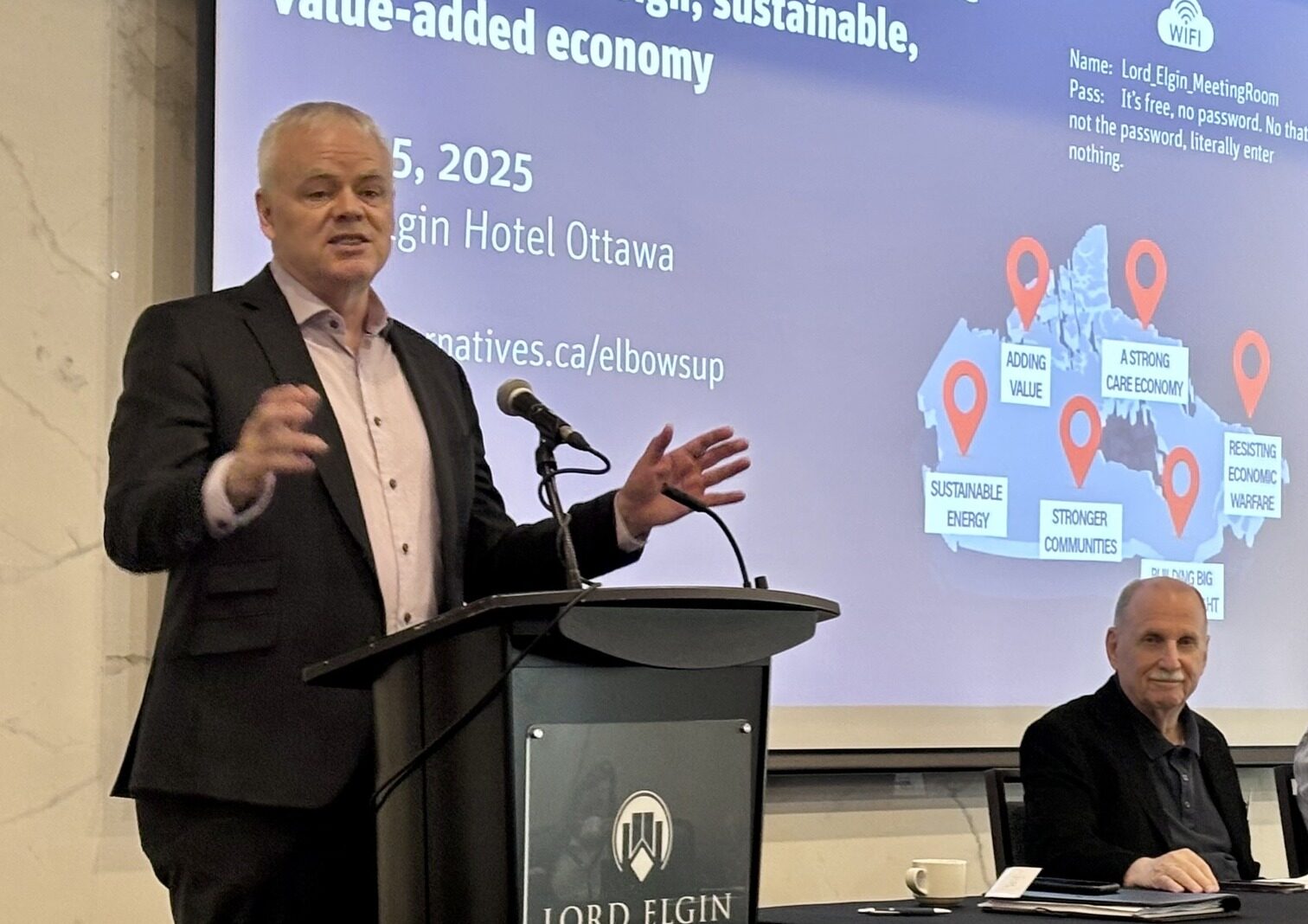People across the country want our governments to do more to combat climate change, according to a new Abacus Data survey commissioned by former CCPA–BC Director Seth Klein
VANCOUVER—The results of an extensive nationwide survey released today suggest Canadians are increasingly anxious about the climate crisis, and have a stronger appetite for “systems-level” climate solutions than political leaders tend to assume.
Among the findings:
- Some 42 per cent believe climate change is now “an emergency,” while a further 20 per cent believe it will likely be an emergency within the next few years, for a combined total of 62 per cent.
- Three-quarters of respondents say they or someone close to them have already experienced the effects of climate change.
- Few Canadians have heard of the Green New Deal (GND). But once they learn about it, they like it. After being given a short description of the GND, 72 per cent responded that they support the key principles.
The survey polled Canadians on their support for six major policy changes—including phasing out the extraction and export of fossil fuels over the next 20 to 30 years and banning the sale of new gas-powered vehicles by 2030—and found that between 67 and 84 per cent of respondents could accept, would support, or would strongly support each proposed policy. Some 74 per cent responded favourably to the question about phasing out fossil fuels (50 per cent support, with a further 24 per cent willing to accept such a move).
The poll also found a connection between support for climate action and for tackling inequality. For example, 79 per cent indicated they would be more supportive of a transition away from fossil fuels if financial support were provided to low- and modest-income household, while 78 per cent would be more supportive of bold climate actions “if the government increased taxes on the wealthy and corporations to help pay for the transition.”
Importantly, the majority of those polled—57 per cent—believed the federal government is doing too little to combat climate change.
“My overall conclusion is that our politicians have been underestimating the public. These results tell us that when it comes to bold climate solutions, the Canadian public is ahead of our elected leaders,” said Seth Klein, who commissioned the poll from Abacus Data this summer.
Klein is the former director of the Canadian Centre for Policy Alternatives – BC Office (CCPA–BC) and an adjunct professor with Simon Fraser University’s Urban Studies program. With support from the CCPA–BC and the Corporate Mapping Project, Klein commissioned the poll as part of his research for a forthcoming book on the climate emergency.
“A solid majority of Canadians are ready to move beyond incremental policies and to welcome truly transformative climate action,” Klein continued. “This runs counter to the prevailing assumption of our political leadership, who appear to believe, incorrectly, that the public is not ready for the system-level changes that climate science tells us are necessary.”
The polling found support for bold climate action to be the strongest in Quebec and weakest in Alberta. However even in the latter province, support for bold action was solid.
Klein noted: “Canadians know climate change is taking place here and now, and as our polling shows, we are ready for more ambitious actions.”
Klein’s analysis can be found at: policynote.ca/climate-poll-2019
The full poll results are available via the Abacus Data website here.
-30-
For media inquiries, contact: [email protected].
About the survey:
Abacus Data conducted this national survey of 2,000 people between July 16 and July 19, 2019. A random sample of panelists were invited to complete the survey online. The margin of error for a comparable probability-based random sample of the same size is +/- 2.19%, 19 times out of 20. The data were weighted according to census data to ensure that the sample matched Canada’s population according to age, gender, educational attainment and region.

